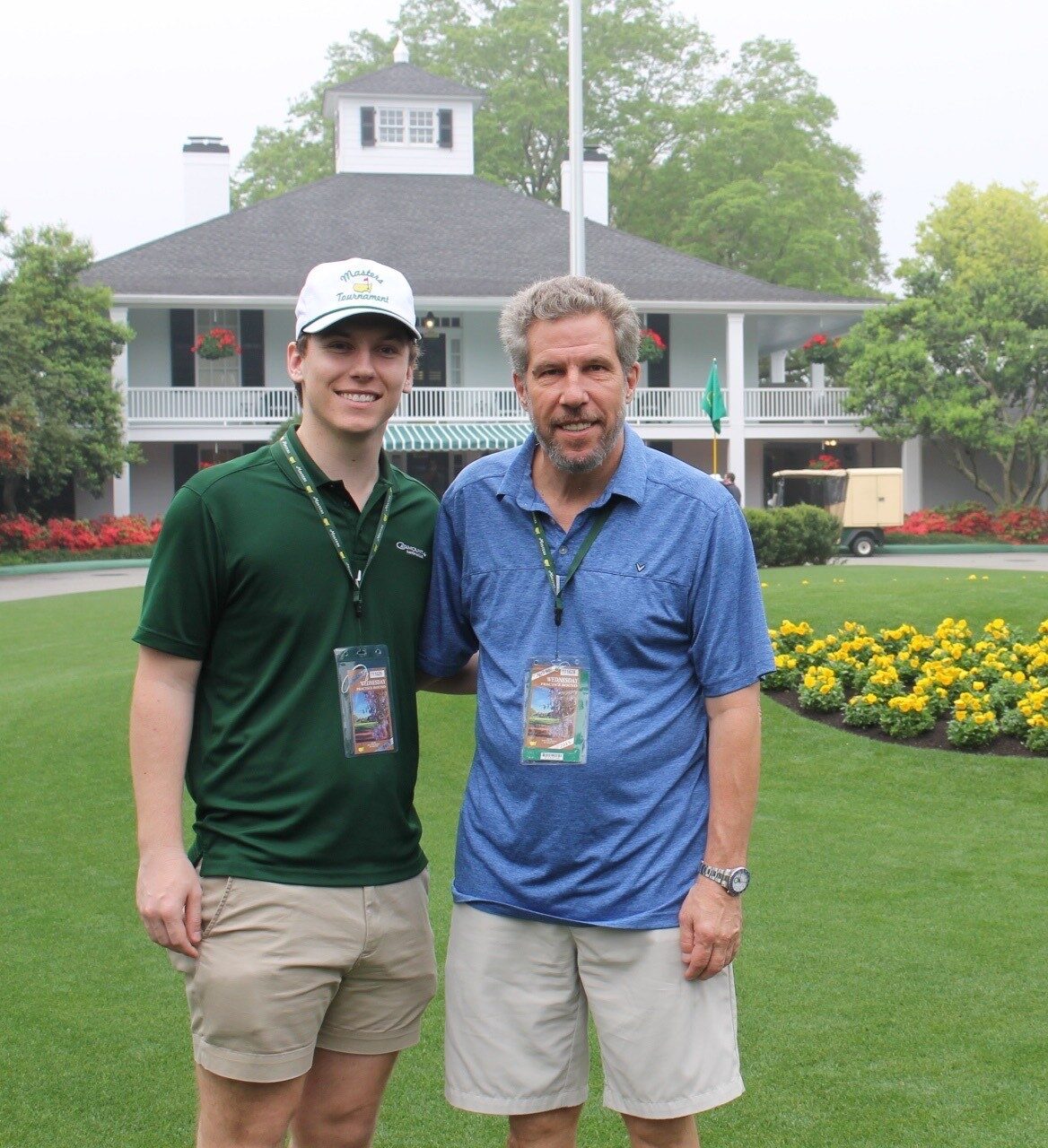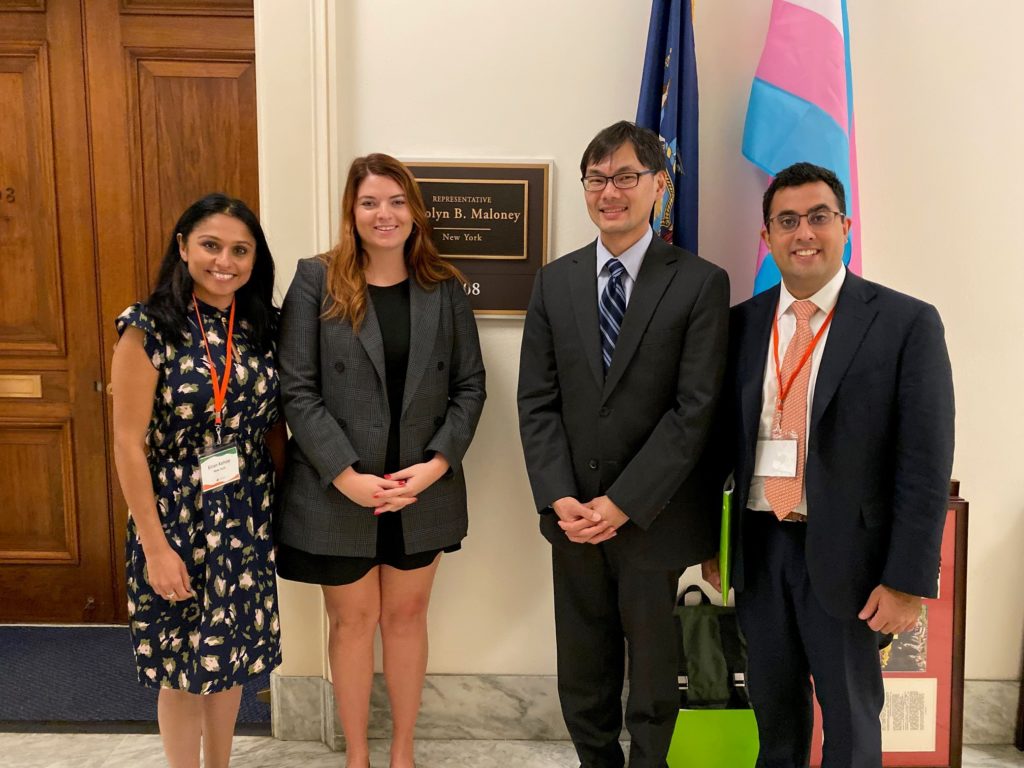
The Legacy
April 11, 2024
This is a guest post by Christopher Wood, Jr, son of the KCA’s late Board Chair and friend, Dr. Christopher…
Read More
Dr. Ritesh Kotecha is a medical oncologist at Memorial Sloan Kettering Cancer Center in New York. He received a 2020 Young Investigator Award for his project “HLA Evolutionary Diversity – A Population Specific Biomarker for Kidney Cancer Immunotherapy”, which will examine inherited cell membrane proteins as potential biomarkers for personalized kidney cancer immunotherapy.
We spoke to Dr. Kotecha about his work and what it means for people with kidney cancer.
Dr. Kotecha: HLAs are histocompatibility leukocyte antigens. When the immune system reacts to a cancer, these HLA “presenters” display antigens of the cancer so the immune system recognizes them and can make an action based on that recognition. For patients needing a transplant who get tested to see if they have “match” to their siblings or other family members, that “match” is identifying the set of HLAs. If we transplant an immune system with very different HLAs, that immune system will get rejected in the recipient. There are more than 15,000 different HLA molecules – the combinations are extraordinary. We think the more diversity among HLA molecules you have, the better you are at presenting antigens for your immune system to recognize. And if you present better, do you respond to immunotherapy better?
Dr. Kotecha: We want immunotherapy to work for everyone, but we also recognize that treatments don’t hold the same value for everyone. Immunotherapy biomarkers for patients with kidney cancer have been really elusive. We’ve been looking at biomarkers from the tumor genomic end, but a different possible mechanism is the flip side – looking at individual patients’ HLAs and asking what is the individual’s immune system’s contribution to how well immunotherapy will work?
The hypothesis is that this might be a big driver. In other cancers that are sensitive to immunotherapy like melanoma or lung cancer, there are now requirements for the presence of certain mutations or PD-1 expression for treatment because those can help determine whether immunotherapy will work. We don’t see that paradigm as strongly in kidney cancer, and if the cancer genetics or protein expressions don’t have as much effect, could a person’s own genomics be a larger component driving their treatment response in kidney cancer specifically?
Dr. Kotecha: Your HLAs function as immune surveillance and guide your ability to fight cancer, and they are inherited. There are some kidney cancers that have a higher association with minorities – I’m curious about renal medullary carcinoma (RMC) in African Americans. Could there be a shared aspect in regards to HLAs or diversity from an individual’s standpoint that increases risk, like a defect in immune surveillance that allows a pre-cancer to grow and form cancer. We can create a genomic ancestry looking at these HLAs and you might see patterns emerge within a specific population of patients.
That means that while the tumor features could be similar in two individuals, the individuals themselves may have different genomic ancestral components and HLAs. We hope to pair what the tumor is bringing to the table and what the person is bringing to the table to better understand why some patients respond well to immunotherapy and some may not respond as well. Based on that, we hope to make a biomarker array that is predictive, and hopefully predictive at the individual level.

Dr. Kotecha: I grew up surrounded by medicine and oncology at a young age. My father is a radiation oncologist. My brother is chief of radiosurgery and leads the brain metastases program at Miami Cancer Institute. We’re always chatting about new ideas given our overlapping fields. From a young age, I had a scientific curiosity and it grew throughout my training. And, I did research at the NIH with Dr. Rick Childs– there, he remained focused on bone marrow transplant as a form of immunotherapy for patients with kidney cancer. With the evolution of these new immunotherapy agents and with my prior work at the NIH and now at MSK with the team led by Dr. Robert Motzer, I have gained a renewed passion for immunotherapy research and kidney cancer.
And, if I can connect with patients and educate them about the work, it’s exciting for patients to hear about the research and exciting for me to share what we’ve been working on. Even though research takes time and energy, that really reinvigorates my perseverance and gives me the confidence to move the needle forward.
Dr. Kotecha: I’m new to this community, but I see patients and caregivers as equal, active partners for advancing science and research. I was at advocacy days [on Capitol Hill] last year and got the collective sense that people recognize that treatments work differently for everyone – and, certainly treatments don’t have the same benefit for all. This type of research puts into context what we could see in the future as individualized treatment strategies for each person.
1 thought on “Q & A: Dr. Ritesh Kotecha, 2020 YIA Recipient”
Dr Kotecha is a caring brilliant doctor
Can’t give enough praises to him